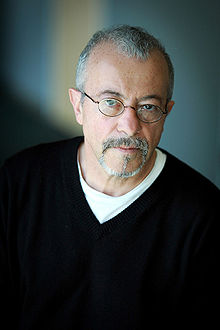Surrealism in art, poetry, and literature uses numerous techniques and games to provide inspiration. Many of these are said to free imagination by producing a creative process free of conscious control. The importance of the unconscious as a source of inspiration is central to the nature of surrealism.

Edward Merton Dorn was an American poet and teacher often associated with the Black Mountain poets. His most famous work is Gunslinger.

Andrei Mureșanu was a Romanian poet and revolutionary of Transylvania.
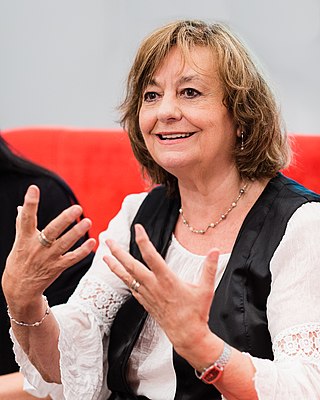
Ana Blandiana is a Romanian poet, essayist, and political figure. She took her name after Blandiana, near Vințu de Jos, Alba County, her mother's home village.
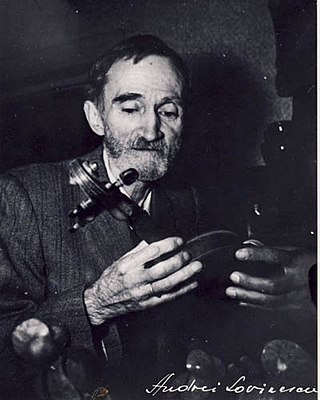
George Bacovia was a Romanian symbolist poet. While he initially belonged to the local Symbolist movement, launched as a poet by Alexandru Macedonski with the poem and poetry collection Plumb ("Lead"), his poetry came to be seen as a precursor of Romanian Modernism and eventually established him in critical esteem alongside Lucian Blaga, Tudor Arghezi, Ion Pillat, Ion Barbu, and Octavian Goga as one of the most important interwar Romanian poets. In the 1950s, he wrote the poem "Cogito", which is his poetical testament.
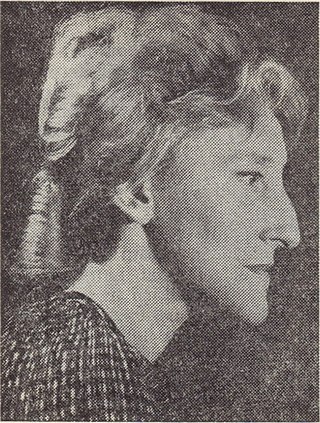
Nina Cassian was a Romanian poet, children's book writer, translator, journalist, accomplished pianist and composer, and film critic. She spent the first sixty years of her life in Romania until she moved to the United States in 1985 for a teaching job. A few years later Cassian was granted permanent asylum and New York City became her home for the rest of her life. Much of her work was published both in Romanian and in English.

Aram Saroyan is an American poet, novelist, biographer, memoirist and playwright, who is especially known for his minimalist poetry, famous examples of which include the one-word poem "lighght" and a one-letter poem comprising a four-legged version of the letter "m".
Carmen Firan is a poet, novelist, short story writer, journalist, and playwright, resident in New York City.
Valery Oisteanu is a Soviet-born Romanian and American poet, art critic, essayist, photographer and performance artist, whose style reflects the influence of Dada and Surrealism. Oisteanu is the author of more than a dozen books of poetry, a book of short fiction, and a book of essays. He is the brother of Romanian historian of religion, cultural anthropologist and writer Andrei Oișteanu.

Ruxandra-Mihaela Cesereanu or Ruxandra-Mihaela Braga is a Romanian poet, essayist, short story writer, novelist, and literary critic. Also known as a journalist, academic, literary historian and film critic, Cesereanu holds a teaching position at the Babeș-Bolyai University (UBB), and is an editor for the magazine Steaua in Cluj-Napoca.
James Nolan is a poet, fiction writer, essayist, and translator. A regular contributor to Boulevard, his work has appeared in New Orleans Noir, Utne Reader, The Washington Post, Poetry, and Southern Review, among other magazines, anthologies, and newspapers. He has translated the work of Spanish-language poets Pablo Neruda and Jaime Gil de Biedma. Nolan is a fifth-generation native of New Orleans and lives in the French Quarter.
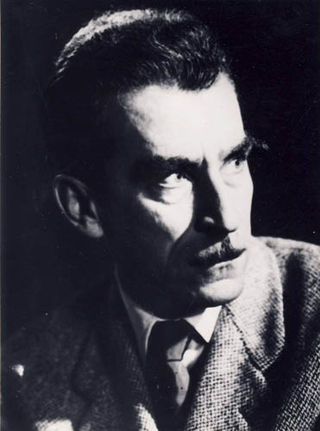
Eugen Jebeleanu was a Romanian poet, translator, journalist, and scholar.

Louis Armand, is a writer, visual artist, and critical theorist. He has lived in Prague since 1994.
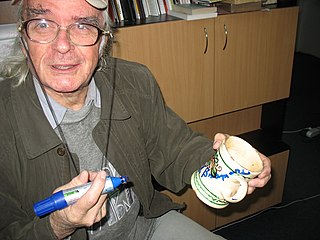
Emil Brumaru was a Romanian writer and poet. He was renowned for his erotic poetry.
Jane J. Phillips, known as J. J. Phillips, is an African-American poet, novelist and civil rights activist. Her best known work is the novel Mojo Hand, first published in 1966, the story of a light-skinned upper-class young woman from San Francisco, California, who after hearing a record by bluesman Blacksnake Brown seeks him out and becomes embroiled in an ultimately tragic relationship with him.
Michael Perkins is an American poet.
Thomas Weatherly Jr. was an American poet, associated with the Saint Mark's Church Poetry Project in New York City.

Otilia Cazimir was a Romanian poet, prose writer, translator and publicist, nicknamed the "poetess of gentle souls", known as a children's poems author.

Maria Banuș was a Romanian poet, essayist, prose writer, and translator.

Ileana Mălăncioiu is a contemporary Romanian poet, essayist, journalist, dissident, and activist. She has been a corresponding member of the Romanian Academy since 2013.
